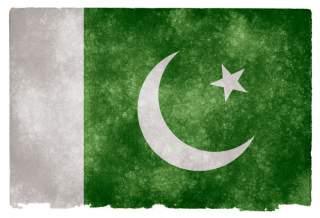How Pakistan Protects Itself from Regional Sectarian War
"An Iraq-style sectarian war has always been unlikely in Pakistan."
Four, sectarian terrorists have far less operating space inside the country than before. The Pakistan Army now is now engaged in active combat operations in all seven tribal areas. The Kurram Agency, located adjacent to North Waziristan, was home to a Sunni-Shia sectarian war that raged from 2007-11. When the Pakistan Army launched the North Waziristan operations last summer, there were fears that terrorists would resettle in Kurram and renew the sectarian war there. But with the army’s active operations across the tribal areas, the TTP can no longer play a cat and mouse game.
Five, at a national level and in all four provinces, there is a whole-of-government approach toward combating sectarianism and militancy. There is unprecedented intelligence sharing and coordination between the civilian and military security agencies in Balochistan and Karachi, where most of the sectarian violence has taken place in recent years.
To be clear, the military is in the driver’s seat. But the net effect has been joint operations by Pakistani paramilitary and police forces in Balochistan and Karachi. Scores of anti-Shia LeJ terrorists have been arrested or killed in Karachi. In Balochistan, targeted killings and mass casualty attacks on Hazara Shias have waned in large part due to the efforts of Home Minister Sarfraz Bugti, who has prevented anti-Shia preachers from entering the province and has swiftly arrested newly created militant cells behind the targeted killings of Hazara Shias this year. Paramilitary forces in Balochistan now provide security for Shia pilgrims en route to Iran.
At the national and provincial levels, government officials are bringing Sunni and Shia leaders together to get them to remove hate speech, terror financing, and incitement material in their curriculums. The government is also considering a ban on takfir—the practice of declaring other Muslims as disbelievers.
Finally, Pakistan’s refusal to play an active combat role in the Saudi-led Yemen war has proved to be a wise strategic decision, helping ensure the country’s internal cohesion. Involvement in the Yemen war was unpopular across the board, but especially with the country’s Shias. A Pakistani combat role in Yemen would have possibly invited Iran to play a destabilizing role in Pakistan, which would then spur Sunni extremists into action.
Digging in for a Long-Term Fight
There appears to be recognition among Pakistan’s senior leadership that Sunni-Shia sectarianism is a cancer that eats at the very idea of Pakistan, which was founded as a homeland for the subcontinent’s Muslims. In both word and deed, Pakistan’s civilian and military leadership have made clear their seriousness in combating, and eventually eliminating, the scourge of sectarianism.
When Talib Hussain, a Shia private security guard, was killed in July while preventing a suicide bomber from entering a Hazara Shia enclave in Quetta, he was hailed as a hero by the Pakistan Army chief, Gen. Raheel Sharif, and the Balochistan Chief Minister Abdul Malik Baloch. The senior military official in Quetta, Lt. Gen. Nasir Janjua, visited Haider’s family. Weeks earlier, Gen. Sharif canceled a scheduled visit to Sri Lanka to head to Karachi after the massacre of Shias by Sunni extremists.
More work, of course, needs to be done. Many key leaders of the ASWJ in Balochistan, Punjab, and Sindh have gone unscathed. Some ASWJ leaders may lack direct linkages to the expressly militant LeJ, but in the case of people like Rafiq Mengal, the ASWJ’s leader in Quetta, the LeJ connections are direct. Mengal was detained in the summer. While Pakistan has made significant gains in reducing sectarian violence in the country over the past two years, victory will come when the arrest, conviction and punishment of extremists like Mengal (who was detained this summer) becomes not the exception, but the rule.
Arif Rafiq (@arifcrafiq) is president of Vizier Consulting, LLC, which provides strategic guidance on Middle East and South Asian political and security issues. He is the author of the monograph, “Sunni Deobandi-Shi`i Sectarian Violence in Pakistan Explaining the Resurgence Since 2007.”
Image: Flickr/Free Grunge Textures

